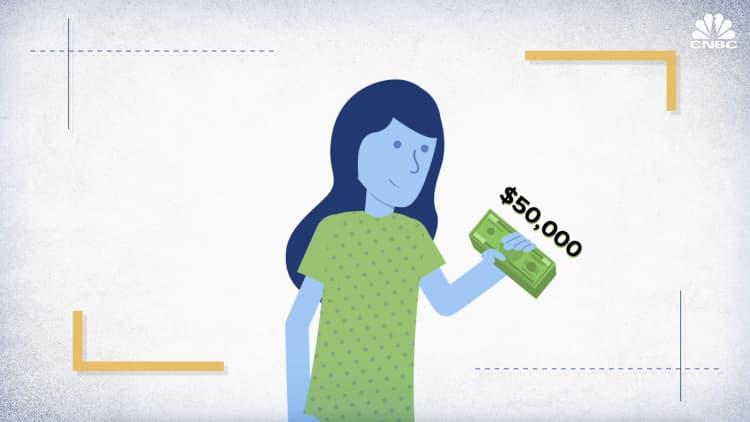Eternity In An Instant | Stone | Getty Images
The financial benefit of starting to invest early
The time element is crucial for investing. A teenager opening a retirement savings account could end up with hundreds of thousands more dollars compared to someone who began saving in their 20s.
For example, say you put aside $5,000 a year each year until you retire at age 65, and earn an average annual return of 7%. An investor who starts at age 25 could end up with roughly $998,000, while someone who starts at age 19 — despite contributing only $30,000 more — might end up with more than $1.5 million. Delaying until 30 would yield about $691,000.
Experts suggest an easy way for young people to build wealth is by opening an individual retirement account that allows you to contribute after-tax dollars, also known as a Roth IRA. Roth IRAs offer tax-free growth, and the money can typically be withdrawn tax-free in retirement.
“Every young person, the minute they get their first job, should only be doing Roth IRAs if they qualify, or Roth 401(k)s,” said Ed Slott, an IRA expert and certified public accountant. “Get the vehicle, the receptacle, the Roth IRA set up and it’s more likely they’ll make it a habit for the rest of their lives as they see their account grow.”
Trust advisors, not TikTok
Much of Gen Z’s confidence about investing comes from the growing accessibility of financial resources, according to the Schwab report. More than a quarter of Gen Z, 28%, say they learned about investing in school, compared with 19% of millennials and 12% of Gen X.
There’s also a greater abundance of information available online and on social media that older generations did not have access to, especially at such early ages. However, experts recommend turning to a trusted financial advisor before taking advice from social media.
“There’s a lot of information out there, but that does not equate to knowledge or context or sometimes the hype of certain parts of the markets that feel attractive, but may not be very good for your long-term investment health,” Williams said. “It’s like being attracted to an ice cream cone versus, you know, the more boring balanced diet, to build wealth over time.”
Most Americans are swiping past the “finfluencer” content showing up on social media, the survey shows.
About three-quarters, or 76%, of Schwab survey respondents said they don’t follow any finance influencers, and 65% reported that social media has no impact on their investments. Overall, respondents said they are more likely to engage with a financial advisor (57%) than social media platforms (42%) for financial advice.
Should people with student loans be investing?
A growing concern for many young people is student loans. In the second quarter of 2024, 6.8 million borrowers under 24 hold a total of $99 billion in federal student loan debt, U.S. Department of Education data shows. That number is even higher, at $490 billion, for the 14.8 million borrowers ages 25 to 34.

However, experts say it shouldn’t hold anyone back from investing.
“If anybody ever waited until they were debt free to do anything, they would never do anything,” Slott said.
But balancing debt repayment and investing for future goals is important. Williams recommends people make the minimum payment on their loans and start small with retirement savings — even if that means putting aside just $100 a month.
As more payments are made and the student loan debt shrinks, he said, “you’ve already started to grow some retirement savings, and you’ll have more from your budget, then, to commit.”

